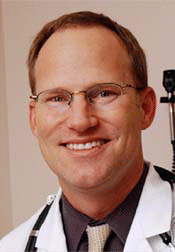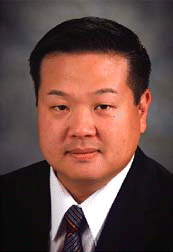Although stereotactic radiation provides a noninvasive approach to treating acoustic neuromas, it also carries the risk of hearing loss over time for a sizable portion of patients, according to experts.


Although stereotactic radiation provides a noninvasive approach to treating acoustic neuromas, it also carries the risk of hearing loss over time for a sizable portion of patients, according to experts.

Head and neck cancer care has been undergoing a paradigm shift over the past decade, moving from a surgery-based approach to one that increasingly relies on chemoradiation (CRT).

Disease-specific outcomes measures in otolaryngology-head and neck surgery can be completed by your patients before and after treatment, enabling tracking of these important outcomes with a minimum of disruption to the normal practice routine


During her presentation at the 2007 Combined Otolaryngology Spring Meeting in San Diego, Dana M. Hartl, MD, PhD, from the Department of Otolaryngology Head and Neck Surgery at the Institut Gustave Roussy in France, described her findings from a retrospective, bi-institutional study designed to review the results of a large series of patients with early glottic squamous cell carcinoma treated with curative intent by transoral laser resection.

Experts agree that continuous positive airway pressure (CPAP) is the gold standard for management of obstructive sleep apnea.

Non-acidic reflux is a major cause of laryngeal inflammation, and patients with this disorder present with a constellation of symptoms that differ from classic gastroesophageal reflux (GERD).

The targeted therapies erlotinib and cetuximab, in combination with standard chemotherapy regimens, are well tolerated and have very encouraging activity in recurrent/metastatic head and neck squamous cell carcinoma, according to two presentations at the American Society of Clinical Oncology (ASCO) 2007 Annual Meeting in Chicago.

Stereotactic radiotherapy is increasingly gaining favor as an attractive alternative to conventional surgery of the skull base and head and neck.

Vertigo is a complaint that often causes patients to seek a consultation with an otolaryngologist.